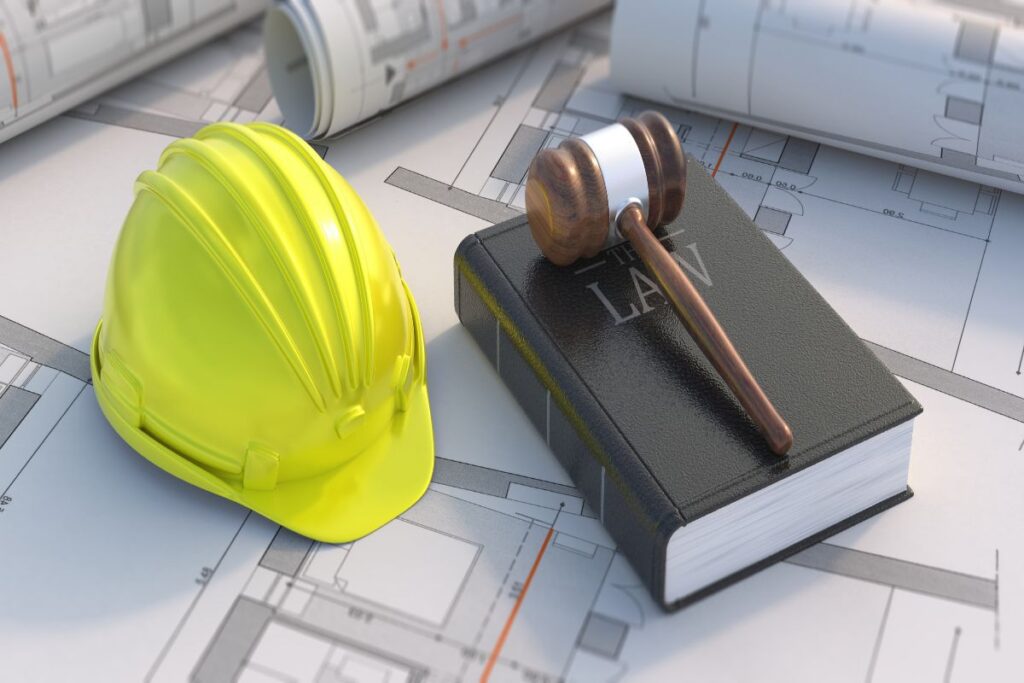In the realm of residential construction, understanding the legal landscape is crucial for builders and contractors. Navigating through the complexities of construction law can be daunting, yet it is essential for ensuring compliance and minimising risks. This article delves into key legal issues that builders need to be aware of, providing a comprehensive overview of the legal framework governing residential construction.
Understanding Contracts in Residential Construction
Contracts are the backbone of any construction project. They outline the obligations, rights, and responsibilities of all parties involved. A well-drafted contract or contract disputes lawyer Sydney can prevent disputes and provide a clear course of action if issues arise.
Types of Contracts
There are various types of contracts used in residential construction, including fixed-price contracts, cost-plus contracts, and time and materials contracts. Each type has its advantages and disadvantages, depending on the nature of the project and the relationship between the parties.
Fixed-price contracts are straightforward, as they stipulate a set price for the entire project. This can be beneficial for budgeting but may lead to disputes if unforeseen issues arise. Cost-plus contracts, on the other hand, allow for flexibility, as they cover the actual costs incurred plus a fee. However, they can lead to budget overruns if not managed carefully.
Key Contractual Terms
When drafting or reviewing a construction contract, several key terms should be included. These include the scope of work, payment terms, timelines, and provisions for changes or variations. Additionally, it is vital to include clauses addressing dispute resolution, termination rights, and liability limitations.
Ensuring that all parties understand these terms is essential to avoid potential conflicts. Clear communication and documentation can significantly reduce the likelihood of misunderstandings during the project. Furthermore, it is advisable for all parties to seek legal advice before signing any contract to ensure that their interests are adequately protected. A legal professional can provide insights into the implications of specific clauses and help negotiate terms that are fair and reasonable for all involved.
Moreover, the importance of regular updates and communication cannot be overstated. As the project progresses, circumstances may change, and it is crucial that all parties remain informed of any developments that could impact the contract. Regular meetings or progress reports can foster a collaborative environment, allowing for any necessary adjustments to be made in a timely manner. This proactive approach not only enhances the working relationship among parties but also contributes to the overall success of the construction project.
Compliance with Building Regulations
Compliance with building regulations is a legal requirement that builders must adhere to. These regulations are designed to ensure safety, health, and environmental standards are met in residential construction.

Understanding Local Regulations
Building regulations can vary significantly from one locality to another. Builders must familiarise themselves with the specific regulations applicable to their projects, which may include planning permissions, zoning laws, and safety standards. Failure to comply with these regulations can result in penalties, fines, or even the requirement to demolish non-compliant structures.
Engaging with local authorities early in the planning process can help clarify what is required and streamline the approval process. This proactive approach can save time and resources in the long run.
Health and Safety Obligations
Health and safety are paramount in the construction industry. Builders have a legal obligation to ensure a safe working environment for their employees and subcontractors. This includes conducting risk assessments, providing appropriate training, and ensuring compliance with health and safety regulations.
Failure to uphold health and safety standards can lead to serious accidents and injuries, resulting in legal action and financial liability. Therefore, implementing robust health and safety policies is not only a legal requirement but also a moral imperative for builders.
Dispute Resolution Mechanisms
Disputes in residential construction can arise due to various reasons, including contract breaches, delays, or quality issues. Understanding the available dispute resolution mechanisms is crucial for builders to effectively manage conflicts.
Negotiation and Mediation
Negotiation is often the first step in resolving disputes. Open communication between parties can lead to amicable solutions without the need for formal proceedings. Mediation is another effective method, where an impartial third party facilitates discussions to help reach a mutually acceptable resolution.
Both negotiation and mediation are generally less costly and time-consuming than litigation, making them preferable options for many builders. However, it is essential to approach these processes with a clear understanding of the underlying issues and a willingness to compromise.
Arbitration and Litigation
If negotiation and mediation fail, arbitration or litigation may be necessary. Arbitration involves a neutral third party making a binding decision based on the evidence presented. This process is typically quicker than litigation and can be less formal.
Litigation, however, is often the last resort due to its complexity and potential for significant costs. Builders should be aware of the legal implications and potential outcomes associated with litigation before proceeding down this path.
Insurance and Liability Considerations
Insurance plays a vital role in protecting builders from potential liabilities in residential construction. Understanding the various types of insurance available is essential for mitigating risks associated with construction projects.
Types of Insurance
Builders should consider obtaining several types of insurance, including public liability insurance, employer’s liability insurance, and contractor’s all-risk insurance. Public liability insurance protects against claims made by third parties for injury or damage caused by the builder’s activities. Employer’s liability insurance is legally required and covers claims made by employees for work-related injuries or illnesses.
Contractor’s all-risk insurance provides comprehensive coverage for property damage and loss during construction. Evaluating the specific needs of each project will help determine the appropriate types and levels of insurance required.
Understanding Liability
Liability in construction can arise from various sources, including negligence, breach of contract, or statutory violations. Builders must be aware of their legal responsibilities and the potential consequences of failing to meet these obligations.
Implementing best practices, such as thorough documentation and adherence to industry standards, can help mitigate liability risks. Additionally, seeking legal advice when necessary can provide clarity on complex liability issues.
Consumer Rights and Protection
Builders must also be aware of consumer rights and protections when dealing with residential projects. Understanding these rights helps ensure compliance and fosters trust with clients.
Consumer Contracts Regulations
The Consumer Contracts Regulations provide essential protections for consumers in residential construction. These regulations require builders to provide clear information about services, pricing, and cancellation rights. Non-compliance can lead to disputes and potential legal action.

Builders should ensure that all contracts are transparent and that clients fully understand their rights. This not only helps in building a positive reputation but also reduces the likelihood of disputes arising from misunderstandings.
Quality of Work and Guarantees
Consumers have the right to expect a certain standard of quality in construction work. Builders should be prepared to address any concerns regarding workmanship and provide guarantees where applicable. Offering warranties can enhance consumer confidence and demonstrate a commitment to quality.
Establishing a clear process for handling complaints and rectifying issues can further strengthen relationships with clients and protect against potential legal challenges.
Conclusion
Residential construction law encompasses a wide array of legal issues that builders must navigate to ensure successful project completion. From understanding contracts and compliance with regulations to managing disputes and consumer rights, awareness of these key legal aspects is essential.
By prioritising legal knowledge and best practices, builders can minimise risks, enhance client satisfaction, and contribute to a more efficient construction process. Engaging with legal professionals when necessary can provide additional guidance and support in navigating the complexities of residential construction law.
Ultimately, a proactive approach to legal issues not only safeguards builders but also fosters a culture of professionalism and accountability within the residential construction industry.
